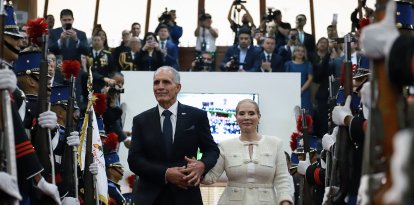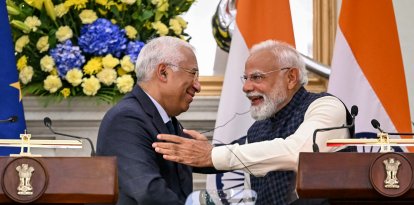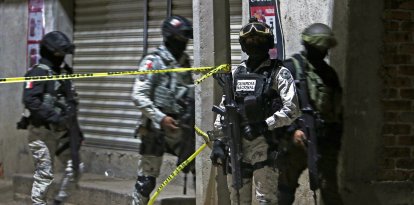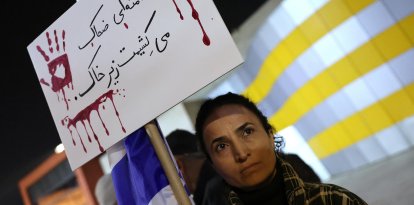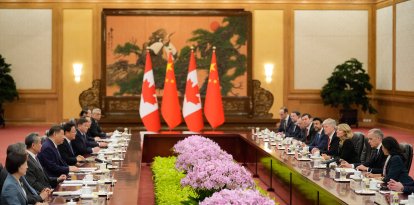Panama's president-elect stands firm on his intention to deport immigrants crossing the dangerous Darien jungle
Panama's Ministry of Public Security reported that a total of 109,069 immigrants seeking to reach the United States illegally crossed the jungle in the first quarter of 2024.

(AFP)
Panama's newly elected president, José Raúl Mulino, promised last week to deport immigrants who enter the country through the Darién jungle, bordering Colombia, on their way to the United States.
"We will initiate with international assistance a process of repatriation with full respect for the human rights of all the people who are there," Mulino said during a speech at the ceremony in which the National Board of Canvassers formally proclaimed him president.
This would be one of the first measures Mulino would take to deal with the migratory crisis. Already during the presidential campaign, he assured that he would close the Darien. "We are going to close the Darien and we are going to repatriate all these people as appropriate, respecting human rights," Mulino said in mid-April to the media - among them Voz de América - during an electoral tour in Las Mañanitas.
Mulino's comments come at a time of record numbers of migrants crossing the dangerous passage. In April, Panama's Public Security Ministry reported that a total of 109,069 immigrants seeking to reach the United States illegally crossed the jungle in the first quarter of 2024. This was a big increase compared to the 87,390 without papers who did so in the same period in 2023.
"Authorities fail to effectively protect migrants' right to life."
They also come a month after a Human Rights Watch (HRW) report charged that Colombia and Panama are failing to effectively protect and assist the hundreds of thousands of migrants and asylum seekers transiting the Darien jungle.
The organization identified shortcomings in the efforts of these Latin American countries to protect and assist people - including those most at risk, such as unaccompanied children - as well as to investigate abuses against them.
"Human Rights Watch identified that, on both sides of the border, authorities are failing to effectively protect the right to life and physical integrity of migrants and asylum seekers in transit, and to investigate violations of their rights effectively, promptly, and thoroughly. Efforts to ensure access to food, water and basic health services have been insufficient, affecting the rights of both the migrant population and local communities that have been marginalized for years and have suffered high rates of poverty and lack of opportunities," the organization outlined in the summary of the report.
Human Rights Watch said that one of the main reasons why migrants are not being protected is because Panama and Colombia do not have a proper strategy to deal with the migration crisis in the region. It argued that the scarce government presence in the Darien Pass leaves migrants in the hands of the Gulf Clan, an armed group involved in drug trafficking that controls the transit of migrants and asylum seekers and profits from their desperation and vulnerability.
The international organization insisted on calling for coordination among the countries of the region to address the migration crisis. HRW stated that "the situation in the Darien Gap demands a broader effort from the entire region. The Latin American and U.S. governments should reverse the measures that are preventing access to shelters and that drive people to cross dangerous places like the Darien."













